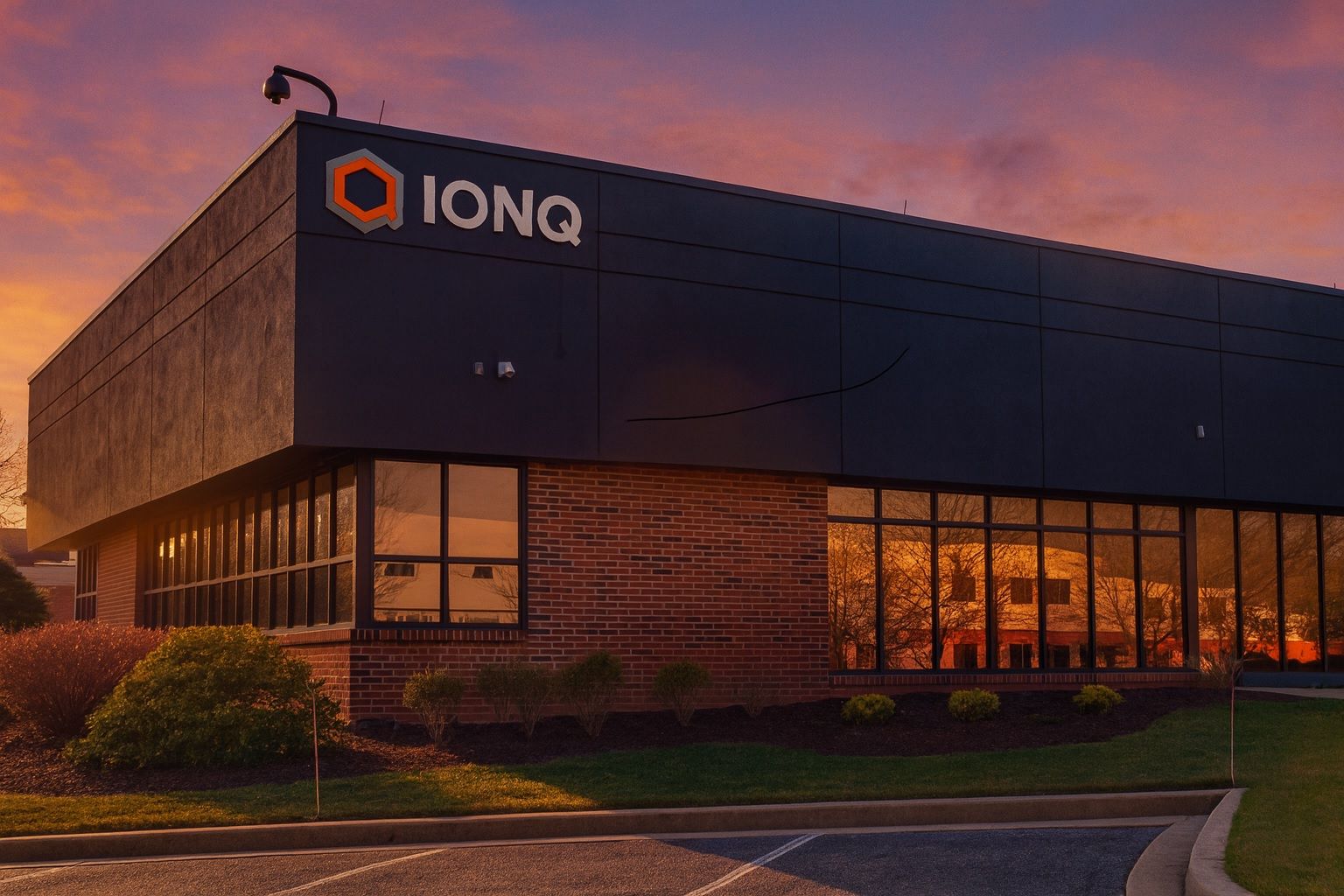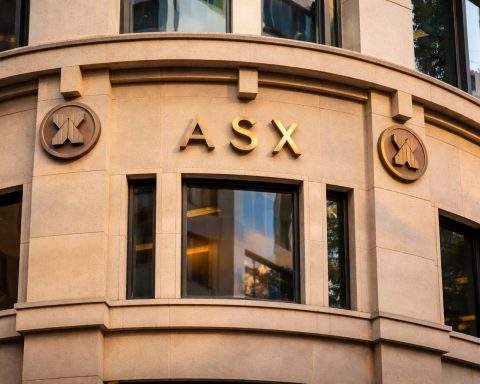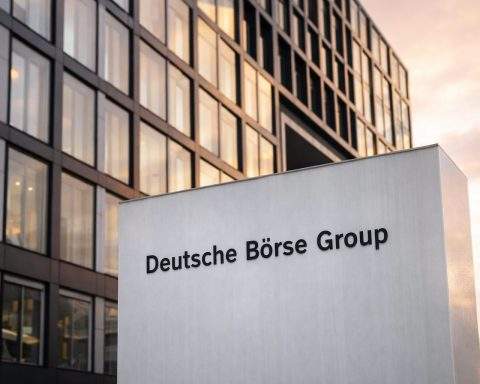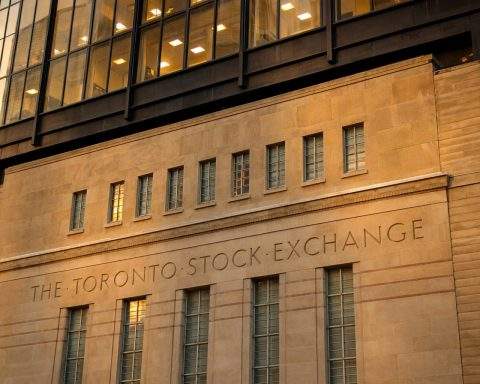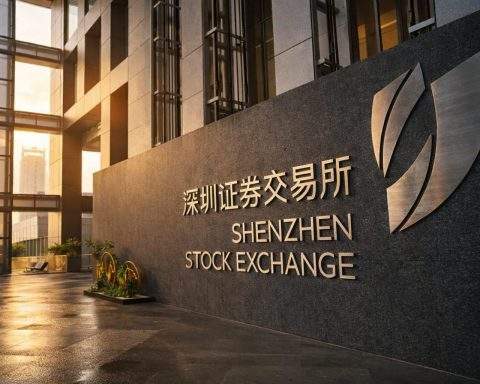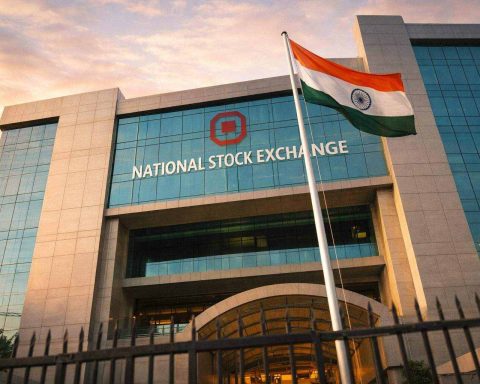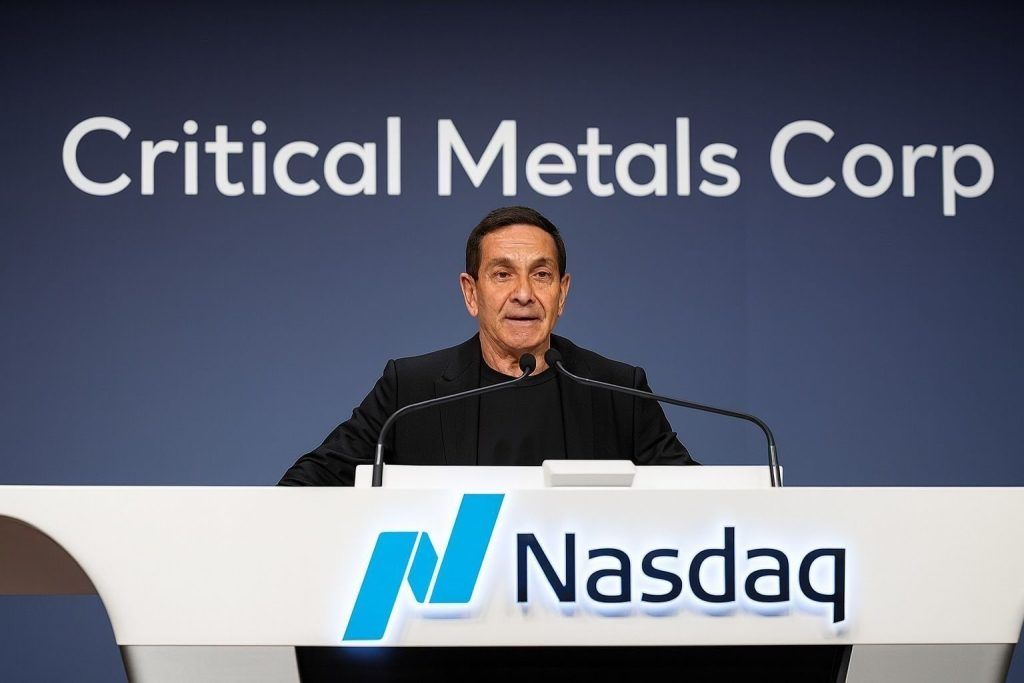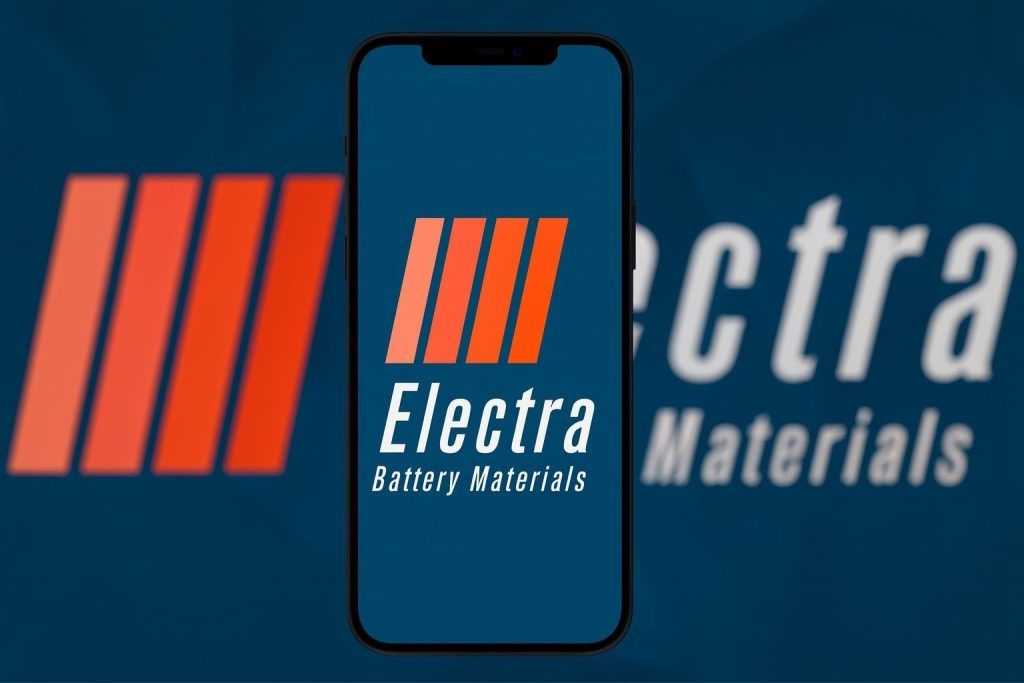Key Facts: IonQ (NYSE: IONQ) is a pure-play quantum computing company whose stock has surged in 2025. As of October 13, 2025, IONQ closed around $82.59investing.com. This marks roughly +75% YTD and a staggering ~700% gain over the past yearts2.techinvesting.com. The market capitalization is about $20–22 billionmarketbeat.com (up from ~$9 in 2024), reflecting sky-high valuation multiples (~200× expected 2025 revenuets2.tech). IonQ’s Q2 2025 revenue was $20.7M (up ~82% YoY)marketbeat.com, but it reported a net loss of $0.70 per share (yielding a negative 885% profit margin)marketbeat.com. The company has raised enormous capital – roughly $3+ billion this year, including a $1B stock sale in mid-2025 and a $2.0B equity offering in Octoberionq.comts2.tech – giving it a very strong cash position (on the order of billions) to fund R&D and expansion. Recent news includes a new quantum chemistry simulation breakthrough (Oct 13, 2025)benzinga.com, inclusion on Fortune’s Future 50 list (Oct 9, 2025)ionq.com, and strategic acquisitions like Vector Atomicionq.com. Analysts are deeply divided: some have raised 12-month price targets to $80–$100 (B. Riley, Needham)marketbeat.commlq.ai, while others caution of a 60%+ downside (Morgan Stanley)markets.chroniclejournal.com. Industry forecasts are huge (up to $1 trillion in economic impact by 2035nasdaq.com), but many experts warn the current “quantum frenzy” may be a speculative bubblemarkets.chroniclejournal.comts2.tech. In short, IonQ is at the center of the quantum revolution – with a potent mix of exciting technical advances and high financial risk.
Stock Price & Recent Performance
IONQ closed at about $82.59 on Oct 13, 2025investing.com, having rallied ~+16.9% that day on positive news. In 2025 alone the stock is up roughly +75% YTDts2.tech, after a ~700% gain over the prior 12 monthsts2.tech. Its 52-week trading range has been about $9.10 – $82.97marketbeat.com, underscoring extreme volatility. Average daily swings of ±5–10% are common. Trading volume has spiked on news releases. The market capitalization is now on the order of $20–22B (P/E ~ –37)marketbeat.com. In one week in early October, IONQ jumped from the mid-$70s to the mid-$80s per share as investors bid up the stockinvesting.commarketbeat.com. (For reference, IONQ peaked near $82.97 on Oct 7marketbeat.com, briefly setting an all-time high.) Overall, IonQ has outperformed both the S&P 500 and other tech stocks in 2025, but it remains extremely sensitive to newsflow – gains can be quickly erased on negative announcements.
- Oct 13, 2025: Closed $82.59 (+16.9% on the day)investing.com.
- YTD / 1-Year: Roughly +75% YTD; ≈+700% over 12 monthsts2.tech.
- Market Cap: ~$21–22 B (P/E ~ –37, P/S ≈200× expected ’25 sales)ts2.techmarketbeat.com.
- 52W Range: $9.10 (low) – $82.97 (high)marketbeat.com.
- Volatility: Frequent double-digit daily moves; beta ~2.6marketbeat.com.
Recent News & Developments
In early October 2025, IonQ made several splashy announcements:
- Oct 13: Quantum Chemistry Breakthrough. IonQ reported that its quantum computer (using QC-AFQMC algorithms) has for the first time computed atomic-level forces in complex molecules more accurately than classical methodsbenzinga.com. This was done in collaboration with a “top Global 1000” automotive customer, aiming at carbon-capture materials and decarbonization. CEO Niccolo de Masi hailed it as “a clear path for quantum computing to enhance chemical simulations that are foundational to decarbonization technologies.”benzinga.com This achievement – which goes beyond typical benchmark problems – fueled optimism (and a ~4–7% pre-market stock jump)investing.combenzinga.com.
- Oct 10: $2.0 B Equity Offering. IonQ priced a massive stock-and-warrant offering on Oct 10, 2025ionq.com. It offered 16.5M shares at $93 each (20% above the Oct 9 close) plus pre-funded warrants and long-dated warrants at $155. Heights Capital Management, Inc. agreed to buy all of it. This $2B capital injection (one of the largest equity raises ever by a quantum firm) diluted existing shareholders but gave IonQ a war chest to expand. De Masi called it “the largest common-stock single-institutional investment in the history of the quantum industry,” and said the funds “will facilitate our global growth and accelerate our quantum commercialization worldwide.”ionq.com.
- Oct 9: Fortune Future 50. Fortune magazine named IonQ one of the Top 10 companies on its 2025 Future 50 list – a prestige ranking of high-growth, high-impact firmsionq.com. IonQ was the only quantum computing company in the list, highlighting investor and media confidence. Fortune specifically cited IonQ’s progress (e.g. achieving a #AQ=64 quantum benchmark, outpacing IBM’s best) and leadership in quantum networking and sensingionq.com.
- Oct 7: Completed Vector Atomic Acquisition. IonQ closed its purchase of California-based Vector Atomic, a startup specializing in quantum sensing (atomic clocks, inertial sensors)ionq.com. This all-stock deal adds ~75 employees and sophisticated timing/gyroscope tech (with 1000× GPS accuracy improvements) into IonQ’s portfolio. De Masi said the deal “marks an exciting expansion for IonQ as we advance toward fully integrated quantum systems… adding world-class, field-deployed sensing capabilities”ionq.com. (IonQ had earlier this year acquired Oxford Ionics, Lightsynq, Capella, etc.ts2.tech, building a full-stack quantum platform.)
- Early Oct (Sept 30 – Oct 1): Einride Investment. Reports emerged that IonQ participated in a $100M funding round for Swedish autonomous trucking startup Einridetechcrunch.comts2.tech. The exact investment was undisclosed, but this strategic stake signals IonQ’s interest in logistics applications. (TechCrunch noted IonQ made an “undisclosed strategic investment” in Einride’s Series Dtechcrunch.com.) IonQ’s analysts suggest this could lead to joint efforts to use quantum algorithms to optimize routing and freight management.
These events (and others such as IoT and government partnerships) have kept IONQ in the news. Notably, in mid-September IonQ also signed a DOE memorandum on quantum satellite communicationsinvestors.ionq.com, and announced partnerships for quantum network projects (not directly in last few days but recent). In short, IonQ is aggressively making headlines with breakthroughs and growth moves.
Financial Health & Valuation
IonQ’s revenue is growing from a very low base, but it remains deeply unprofitable. For Q2 2025 (ended June), revenue was $20.69 million (an 81.6% jump YoY)marketbeat.com, slightly beating estimates of $17.23Mmarketbeat.com. However, net losses are huge: $0.70 per share for Q2, versus a much smaller loss a year prior, meaning an 885% net margin lossmarketbeat.com. The company guided that FY2025 revenue will be $82–$100 M (up from $11M in FY2022) due to new contracts and apps, but profitability is still projected far in the future. Analysts’ consensus forecasts (via MarketBeat) expect a 2025 EPS of about –$0.86marketbeat.com.
On the balance sheet, IonQ is flush with cash from this year’s financings. It ended Q2 with roughly $1.6 B in cash (after the $1B stock sale in spring)ts2.tech, and now has another $2.0B from the October offeringionq.com. Net of accumulated deficits, IonQ is actually quite liquid for now. But share count has ballooned, and the equity raise price ($93) was a significant premium. This large fundraising reflects both growth ambitions and the need to fund ongoing R&D; it also means dilution risk if future raises are needed.
Valuation multiples are extreme. At ~$20–22 B market cap with ~80–100 M of anticipated 2025 revenue, IonQ trades at ~200× forward salests2.tech. (For context, one analyst noted at a lower valuation that “IonQ sports a market cap of approximately $12B, which is substantial considering the company’s only revenues today come from early-stage quantum services.”ts2.tech.) Its price-to-sales (TTM) is in the 300× rangenasdaq.com – orders of magnitude above normal tech firms. The negative P/E is essentially meaningless (–37 as of Oct 13marketbeat.com). In short, IonQ’s stock valuation is pricing in many years of future growth (millions of qubits, billions in sales) before any profit. If growth slows or costs remain high, the valuation could come under pressure.
Insiders have occasionally sold stock (e.g. CEO de Masi sold shares in Sept 2025marketbeat.com), but institutions are backing IonQ: for example, Vanguard and other funds have added positionsmarketbeat.com. On the liability side, IonQ has significant R&D and SG&A burn (2025 losses well over $100M), but low debt. Its high cash reserves mitigate near-term financing risk. However, investors should note that sustained progress will likely require periodic capital raises, and future share dilution could be a concern.
Analysts & Expert Commentary
Wall Street analysts are deeply split on IonQ’s prospects. Bullish views: Research firms like B. Riley and Needham have raised IonQ’s 12-month targets this fall – e.g. B. Riley bumped its target from $75 to $100marketbeat.com, and Needham raised theirs to $80mlq.ai, citing IonQ’s aggressive roadmap (2 million qubits by 2030) and recent tech wins. Other buy-rated analysts (Rosenblatt, Benchmark, Cantor Fitzgerald) have targets in the $60–75 rangemarketbeat.commlq.ai. These bulls point to IonQ’s unique assets (trapped-ion tech, AWS partnerships, quantum satellite/network plans) and booming investor interest in quantum. CEO Niccolo de Masi projects a bright future: in public comments he emphasized IonQ’s world-class talent and cash – calling the new capital raise a chance to “expand our ecosystem…strengthened our unique position”ionq.com – and touted early commercial clients (e.g. AWS, AstraZeneca) already achieving 20× speedups on IonQ hardware.
Bearish / Cautious views: Other analysts warn the stock is overheated. Weiss Ratings recently reiterated a “Sell (D-)” rating, noting fundamentals lag the hypemarketbeat.com. Morgan Stanley’s Joseph Moore – while acknowledging IonQ’s tech lead – maintained a $32 price target in September (implying ~60% downside)markets.chroniclejournal.com. Barron’s and other publications have highlighted the “bubble” risk: Quantum companies (like IonQ and Rigetti) have seen 4× average gains on only $50M combined revenue (per Barron’s). One analysis bluntly warns that IonQ and peers “are still in early development stages. Their revenues remain low, losses are large, and the technology is not yet ready for widespread real-world use.”ts2.tech. Indeed, Wall Street’s consensus 12-month price target for IonQ is only about $58marketbeat.com – far below current levels – reflecting the view that much must go right for share prices to justify themselves.
Expert highlights: In the quantum community, IonQ is often cited as a leader in trapped-ion QC and in building a quantum “ecosystem.” De Masi pointed out that IonQ is “the only U.S. quantum computing company currently delivering commercial quantum networking systems” (e.g. for the U.S. Air Force and Chattanooga’s EPB)investors.ionq.com, illustrating its unique position. On the flip side, tech experts remind investors that “history tells us” hype often overshoots reality: even the Motley Fool notes every “next-big-thing” endured a bubble-burst (Moore’s Law, internet)nasdaq.commarkets.chroniclejournal.com. Leading consultancies (BCG, Quantum Insider) project massive long-term markets – e.g. on the order of $0.5–1 trillion by 2035–2040nasdaq.com – but realize quantum computing is still years from mass adoption.
In summary, IonQ has its share of cheerleaders and skeptics. Bulls emphasize milestone wins and big-picture vision, while bears emphasize current fundamentals (or lack thereof) and rocketing price multiples. As one market commentator noted: the recent rally has been driven more by “investor optimism, hype, and government support than by fundamentals”ts2.tech. Investors should weigh both sides: IonQ’s position at the forefront of quantum tech is real, but its stock may be pricing in ideal outcomes.
Short-Term & Long-Term Outlook
In the short term, IonQ’s stock is expected to remain highly volatile. Analysis suggests quantum hardware stocks will “continue to react sharply to technological announcements, funding rounds, and early commercialization successes or failures.”markets.chroniclejournal.com. In practical terms, this means IONQ could spike further on any positive news (new partnerships, stronger-than-expected contracts, tech demos) – but could also tumble if earnings disappoint or broader risk-off sentiment hits the tech sector. The recent 16–18% jump on Oct 13 shows how quickly sentiment can swing. The company’s heavy cash burn means it will likely need ongoing capital raises; dilution from future offerings is a key risk. On balance, most strategists would say the short-term trend is up while excitement lasts, but with the caveat of wild price swings.
For the long term, IonQ’s fate depends on big technological bets. Management aims for truly enormous qubit systems (hundreds of logical qubits by 2030) that could unlock real quantum advantage. If achieved, IonQ could justify its lofty valuation. Industry forecasts are huge – e.g. The Quantum Insider estimated up to $1 trillion of economic impact by 2035nasdaq.com, and Boston Consulting Group sees similar multi-hundred-billion markets by 2040nasdaq.com. Those figures assume breakthroughs in error correction, hardware scale, and software. IonQ’s broad strategy (computing + networking + sensing) plays to these trends.
However, risks abound. Many analysts caution a “quantum bubble” is formingmarkets.chroniclejournal.com. High price-to-sales ratios (IonQ ~300×nasdaq.com) are historically unsustainable, and any delay or technical setback could trigger a sharp correction. Competition is intensifying: tech giants like IBM, Google/Alphabet, Microsoft, Amazon and chipmakers are pouring R&D dollars into quantummarkets.chroniclejournal.com. If these incumbents gain breakthroughs or decide to build their own chips, IonQ could be outpaced. Additionally, the practical utility of quantum algorithms (beyond specialized cases) remains to be proven – so there is execution risk.
Risk assessment: Investors should view IONQ as a high-upside/high-risk play. A successful, growing quantum industry could send the stock even higher (as bulls envision). But there is equally a large risk of sharp declines if reality falls short of hype. One well-known analyst scenario even sees the stock 50–60% lower if current targets prove too optimisticmarkets.chroniclejournal.com. The short-term outlook hinges on milestones: meeting 2025 revenue guides, successful integration of acquisitions (Oxford Ionics, Vector Atomic), and continued tech progress. In the longer term, success depends on IonQ (and the field) reaching quantum advantage – a point most experts reckon may not arrive before the mid-2030s. Until then, IonQ remains a speculative growth bet rather than a value investment.
IonQ’s Position in the Quantum Sector
IonQ occupies a pivotal niche in the budding quantum ecosystem. It is one of only a handful of pure-play quantum computing companies traded publicly (alongside Rigetti and D-Wave)nasdaq.commarkets.chroniclejournal.com. Unlike IBM or Google (which also develop quantum hardware internally), IonQ’s entire business is dedicated to building and commercializing quantum technology. It uses trapped-ion qubits, which offer advantages like all-to-all connectivity and high fidelity compared to superconducting designs. IonQ’s devices (Forte, Forte Enterprise, Tempo) are already available to customers via major cloud platforms (AWS Braket, Microsoft Azure, Google Cloud)marketbeat.com, and it reports real-world clients using them for drug R&D, finance, and other advanced computations.
Beyond computing, IonQ is explicitly positioning itself as a full-stack quantum solutions provider. In 2025 it has expanded into quantum networking and sensing through key deals: acquiring Oxford Ionics (to put ion traps on a semiconductor chip), Lightsynq (photonics tech), Capella Space and Qubitekk (satellite/QKD communications), and Vector Atomic (precision sensors)ts2.tech. It also invests in niche applications – for example, its stake in Einride hints at future quantum optimization for logisticstechcrunch.comts2.tech. These moves suggest IonQ aims to build not just faster quantum processors, but an interconnected platform including secure space links and timing systems. This broad scope is rare among startups and could create cross-selling synergies if quantum computing matures.
On the government and defense side, IonQ has won high-profile projects. In September 2025 it signed an MOU with the U.S. Department of Energy to develop space-based quantum communicationinvestors.ionq.com. IonQ touts that it is “the only U.S. quantum computing company currently delivering commercial quantum networking systems,” citing partnerships with the U.S. Air Force Research Lab and Chattanooga’s EPB municipal utilityinvestors.ionq.com. Such engagements with DOE/NASA and the Department of Defense underline IonQ’s reputation as an industry frontrunner. It has also launched “IonQ Federal,” a government-focused business unit (per industry reports) to target national security and research agencies.
In the broader market, IonQ is frequently highlighted as a leader in a nascent industry. Its ~1000-patent portfolio and recognition (Fortune, Newsweek, Forbes) reflect its prominence. That said, the quantum field includes many well-capitalized giants: IBM already runs a 433-qubit superconducting machine and sells quantum cloud services, Google and Rigetti are advancing superconducting quantum chips, while NVIDIA, Intel, and startups like PsiQuantum are working on photonics. These big players give the industry credibility but also heighten competition. In this mixed landscape, IonQ’s strategy of diversification (computing + networking + sensing) sets it apart; if any public quantum company could become a “platform” provider of quantum technology services, IonQ is arguably the one.
Bottom line: IonQ today is arguably the most visible pure-play quantum company – a bellwether for investor sentiment in the sector. It has a first-mover advantage in trapped-ion QC and quantum networking, plus deep relationships with cloud giants. However, it is still in the early innings. Its success (and stock performance) will depend on transforming technological promise into reliable revenue and on whether the massive industry projections come to pass. For the average investor, IonQ’s story is compelling – but they should keep in mind the experts’ warnings that the current frenzy may have outpaced the technology’s commercial realitymarkets.chroniclejournal.comts2.tech.
Sources: Current stock data and trendsinvesting.commarketbeat.com; recent IonQ press releases and industry newsionq.combenzinga.comionq.comionq.comtechcrunch.com; financial filings and analyst reportsmarketbeat.commarketbeat.com; market commentary and forecastsmarkets.chroniclejournal.comnasdaq.comts2.techmarkets.chroniclejournal.com; and TS2.tech analysis of IonQ’s 2025 developmentsts2.techts2.tech. All cited content is from reputable financial and industry sources.
